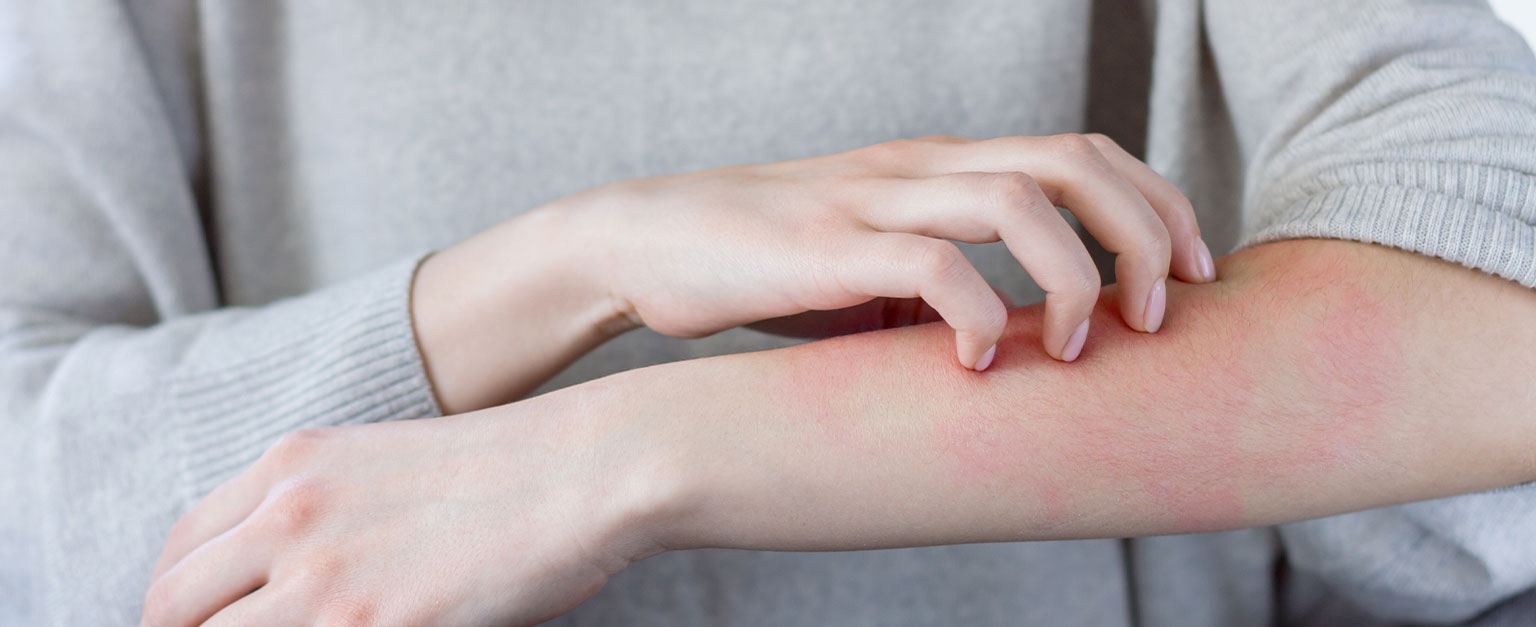How to Recognize and Manage Skin Allergies
Skin allergies can be frustrating, often leading to redness, itching, swelling, and general discomfort. Knowing how to identify and manage these reactions is key to maintaining healthy skin and preventing flare-ups. Below, we’ll explore common types of skin allergies, their triggers, and the best ways to keep symptoms under control.
Recognizing Skin Allergies
Skin allergies occur when the immune system reacts to a substance that comes into contact with the skin. Some of the most common types include:
- Contact Dermatitis – Caused by exposure to an irritant or allergen, leading to redness, itching, and sometimes blistering. Common triggers include fragrances, metals (such as nickel), certain skincare ingredients, and household cleaners.
- Eczema (Atopic Dermatitis) – A chronic condition characterized by dry, itchy, and inflamed skin. While eczema involves immune system dysfunction, flare-ups can be triggered by allergens, environmental factors, or stress.
- Hives (Urticaria) – Raised, itchy welts that appear suddenly in response to allergens, stress, or infections. They typically resolve within hours or days.
- Angioedema – A deeper form of swelling that occurs beneath the skin, often appearing with hives. It is commonly linked to food allergies or medication reactions.
Common Triggers of Skin Allergies
Skin allergies can be caused by various substances, including:
- Skincare and cosmetic ingredients: fragrances, preservatives, dyes
- Metals: nickel in jewelry, watches, and belt buckles
- Plants: poison ivy, poison oak, and certain flowers
- Household chemicals: detergents, fabric softeners, soaps
- Medications: topical antibiotics, pain relievers
- Foods: egg, milk, peanuts/ tree nuts, shellfish, soy, and wheat
Managing Skin Allergies
Avoiding Triggers
The most effective way to manage skin allergies is to identify and steer clear of known triggers. Keeping a journal of foods, skincare products, household cleaners, and environmental exposures can help pinpoint potential allergens.
Choosing Gentle Products
Opt for fragrance-free, hypoallergenic skincare and household products. Reading ingredient labels carefully can help you avoid substances that may trigger a reaction.
Maintaining a Healthy Skincare Routine
- Keep Skin Hydrated – Using a non-fragranced moisturizer helps strengthen the skin barrier and minimize irritation. Moisturize daily and whenever your skin feels dry.
- Use Mild Cleansers – Harsh soaps can strip the skin’s natural oils, making it more prone to reactions. Instead opt for gentle, non-fragranced facial and body cleansers.
- Avoid Hot Showers – Lukewarm water is gentler on sensitive skin and prevents excessive dryness.
Treating Skin Reactions
- Apply Cold Compresses – Helps reduce swelling and soothe itching.
- Use Anti-Itch Creams – Hydrocortisone creams and antihistamine lotions can relieve discomfort.
- Take Antihistamines – Over-the-counter antihistamines taken as directed can help control allergic reactions.
- Consult a Dermatologist – If symptoms persist or worsen, a dermatologist can conduct patch testing to identify specific allergens and recommend appropriate treatments.
When to Seek Medical Attention
Seek immediate medical care if you experience:
- Severe swelling, especially around the eyes, lips, or throat
- Difficulty breathing
- Rapidly spreading rashes or blistering
Final Thoughts
Although skin allergies can be challenging, they can be effectively managed with the right approach. By recognizing triggers, using suitable skincare products, and seeking medical guidance when necessary, you can maintain healthier, more comfortable skin.
If you suspect a skin allergy, consider consulting a dermatologist for a personalized management plan tailored to your needs.
Book an appointment on our website or give our office a call at 203-538-5682.

